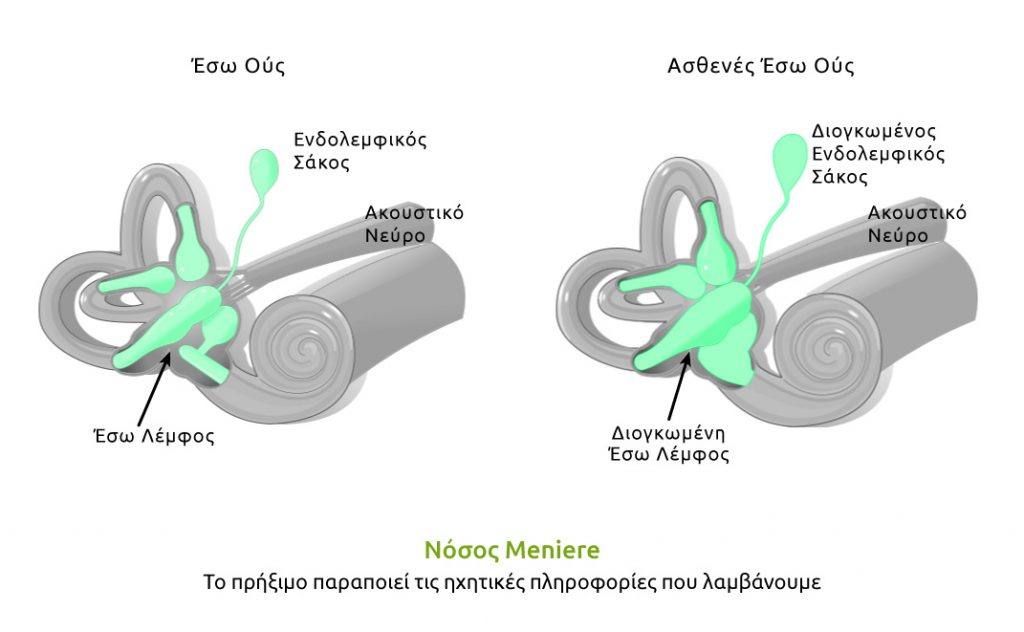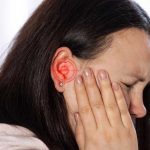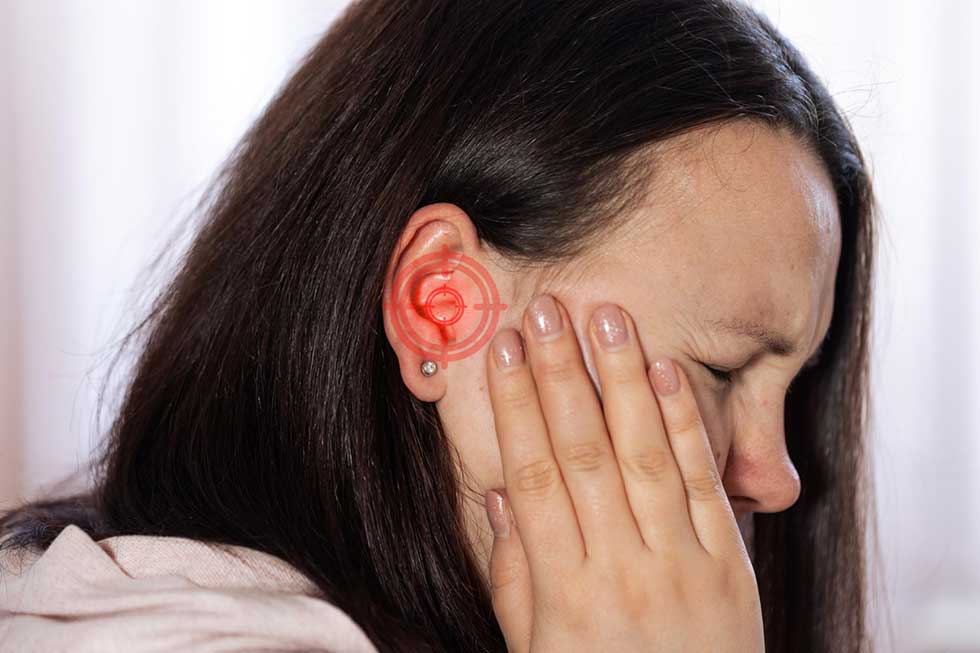Η νόσος ή σύνδρομο Meniere, παίρνει το όνομά του από τον Γάλλο γιατρό Prosper Meniere και ορίζεται ως συνδυασμός ακανόνιστων προσβολών νευροαισθητήριας βαρηκοΐας που σχετίζονται με εμβοές και επεισόδια ιλίγγου τα οποία τείνουν να εμφανίζονται κατά ώσεις. Σε αυτά τα τρία κλασικά συμπτώματα έχει προστεθεί κι ένα τέταρτο – το αίσθημα της πίεσης στο αυτί που νοσεί.
Ο ασθενής που πάσχει από σύνδρομο Meniere αρχικά εμφανίζει ένα αίσθημα απόφραξης στο ένα αυτί, συγκεχυμένη, παθολογική ακοή και εμβοές. Αυτά τα προβλήματα συχνά αποδίδονται σε κάποιο πρόβλημα με την ακουστική σάλπιγγα και αντιμετωπίζονται με αποσυμφορητικά για τη μύτη ή ακόμα και αντιβιοτικά. Το πρόβλημα παρέρχεται μέχρι να υποτροπιάσει, αφήνοντας πιθανώς μια μικρή απώλεια ακοής, εμβοές και ένα αίσθημα αποφραγμένου αυτιού. Μέσα στον πρώτο χρόνο από την πρώτη εμφάνιση των συμπτωμάτων, και συχνά μετά από μια περίοδο με αύξηση της πίεσης στο αυτί, χειρότερη ακοή ή δυνατότερες εμβοές, ο ασθενής εμφανίζει ένα επεισόδιο ιλίγγου, μεγάλης διάρκειας (έως και ώρες) το οποίο μπορεί να επιφέρει αίσθηση αστάθειας (έως και μέρες), καθώς και μείωση ακοής.

Οι προσβολές εμφανίζονται κατά ώσεις για διάστημα αρκετών μηνών και μετά φαίνεται να εξαφανίζονται, συχνά για περίπου ένα χρόνο, πριν να υποτροπιάσουν εκ νέου με την εμφάνιση μιας προοδευτικής απώλειας της ακοής και παραμόρφωση της υπολειμματικής ακοής.
Υπάρχουν πολλές διαφορετικές μορφές της νόσου, αλλά απαιτούνται και τα 4 συμπτώματα (απόφραξη, βαρηκοΐα, εμβοές, ίλιγγος) για την εν λόγω διάγνωση.
Η θεραπεία είναι δύσκολη διότι η αιτιολογία της νόσου είναι άγνωστη. Υπάρχουν διάφορες επεμβάσεις που μπορούν να πραγματοποιηθούν στην προσπάθεια να ελεγχθεί ο ίλιγγος. Η απλή εισαγωγή ενός σωληνίσκου αερισμού στον τυμπανικό υμένα, η επέμβαση στο έσω ους όπου αφαιρείται το οστό που καλύπτει τμήμα του έσω ωτός, η διατομή του νεύρου της ισορροπίας, η καταστροφή του έσω ωτός (λαβυρινθεκτομή) που όμως προκαλεί αστάθεια στον ασθενή και τέλος θεραπεία με ένεση αμινογλυκοσιδών (αντιβιοτικά) στο μέσω ους.
Σε κάθε στάδιο της νόσου υπάρχει κάτι που μπορεί να γίνει για να βελτιώσει την ποιότητα της ζωής των ασθενών, αν και όσο το σύνδρομο Meniere προχωράει γίνεται πιο απαιτητική και η έμφαση μετατοπίζεται από τη διακοπή του ιλίγγου στη διατήρηση της ακοής.







